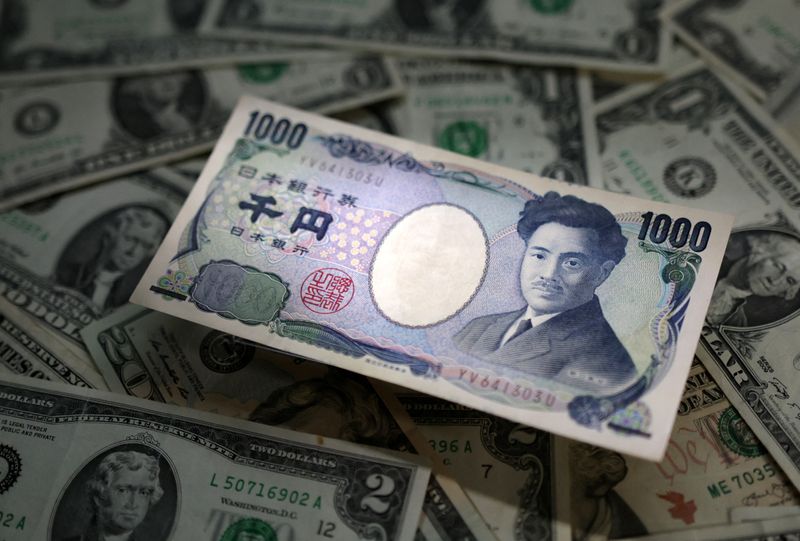By Stefano Rebaudo
(Reuters) -Investors rushed to safe haven currencies including the U.S. dollar, Swiss franc and yen after a warning from Russia over its updated nuclear doctrine.
President Vladimir Putin issued a warning to the United States on Tuesday, lowering the threshold for a nuclear strike after Joe Biden’s administration reportedly allowed Ukraine to fire long-range American-made missiles deep into Russia.
The yen rose 0.5% against the dollar and 0.8% against the euro, reaching its highest level since October 4 at 161.50.
The yen has fallen about 7% since October and weakened past the 156 per dollar level last week for the first time since July, putting traders on alert for any intervention by Japanese authorities to support the currency.
The Swiss franc rose 0.3% against the euro to 0.9325, after trading at 0.9305, the highest since early August.
The – a measure of the stock’s value against a basket of foreign currencies – rose 0.25% to 106.46. Last week the index reached 107.07, the highest level since November 2023.
“Typical risk-off move in the currency market after the headlines,” said Athanasios Vamvakidis, global head of currency strategy at Bofa, referring to the reaction to the Kremlin statement.
“The market has been complacent on geopolitical risks and focused on other themes,” he added. “Positioning has been a risk for a long time, but after the US elections it has come under even further pressure.”
The dollar has risen more than 2% this month, supported by reduced expectations about the size of the Federal Reserve’s interest rate cuts and the view that newly elected US President Donald Trump will pursue inflationary policies.
The dollar started the European session with a small gain as investors kept a close eye on Trump’s search for a treasury secretary.
Eligible names include Marc Rowan, CEO of Apollo Global Management (NYSE:) and Kevin Warsh, former governor of the Federal Reserve.
Analysts have pointed out that Warsh is seen as less protectionist than the other candidates.
The perceived increasing likelihood that he could get the job may have been a major factor in Monday’s intra-day Treasury rally, they say.
Treasury proceeds
U.S. Treasury yields fell slightly on Monday as traders digested the still-strong U.S. economy and the likely policies of a Trump administration.
“Given the large budget deficit, a candidate who is less likely to counter some of President-elect Trump’s plans could see the long end of the US Treasury market sell off and perhaps even soften the dollar,” said Chris Turner, head of US government bonds. of the currency strategy at ING.
Markets expect Trump to cut taxes, which could widen the budget deficit.
“The increasing likelihood that former Fed Governor Kevin Warsh will become Treasury Secretary is reassuring to market participants, as he could help rein in some of the more disruptive parts of Trump’s policy agenda,” said Lee Hardman, senior currency analyst at MUFG .
Investors are also awaiting negotiated eurozone wage figures due on Wednesday and regional purchasing manager surveys on Friday, which could be key to the European Central Bank’s policy decision in December.
Markets have fully priced in a 25 basis point rate cut and a just under 20% chance of a 50 basis point move, which some analysts say is still on the table.
On Monday, two top ECB policymakers said they were more concerned about the damage expected new US trade tariffs would do to growth than any impact on inflation.
The euro fell 0.4% to $1.0553, mainly due to the risky move following Putin’s warning. Last week, the price reached $1.0496, the lowest level since early October 2023.

Elsewhere, the Australian dollar last traded at $0.6491.
The Reserve Bank of Australia offered indirect support by reiterating that interest rates are unlikely to be cut anytime soon and may even need to be raised in some scenarios.


